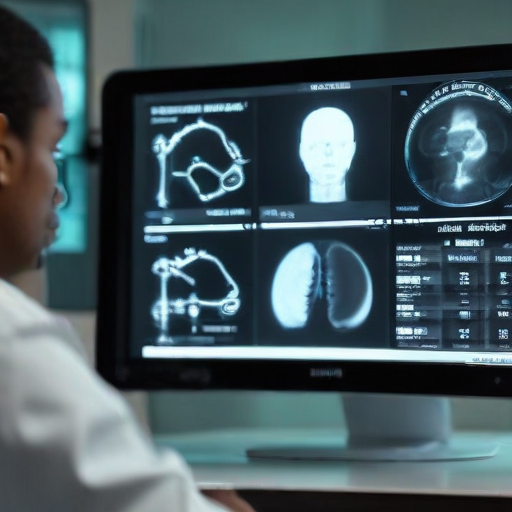A healthcare technology company has announced that its artificial intelligence software can more accurately assess the extent of prostate cancer compared to traditional methods used by physicians. Avenda Health’s study, conducted in collaboration with UCLA Health and published in the Journal of Urology, highlights the capabilities of their AI tool, Unfold, which achieved an impressive accuracy rate of 84.7% in detecting cancer. In comparison, the accuracy of human doctors ranged between 67.2% and 75.9%.
The research involved ten doctors evaluating 50 prostate cancer cases each. The study also revealed that when AI assistance was utilized, the predictions regarding the size of tumors were 45 times more accurate and consistent than when relying solely on standard methods.
According to Shyam Natarajan, a senior researcher involved in the study, the integration of AI not only improved the accuracy of diagnoses but also enhanced consistency among physicians in their assessments. This consensus is crucial for effective treatment planning.
Some tumors elude detection by MRI scans—often referred to as “MRI-invisible.” Dr. Wayne Brisbane, an assistant professor at the David Geffen School of Medicine at UCLA, explained that AI technology offers significant advantages in situations where traditional imaging fails, contributing to more precise and personalized patient care.
The implications of using AI in cancer treatment are profound, as it promises to provide tailored therapies that align better with individual patient needs. Brisbane noted that AI has the potential to “exceed human ability” in certain diagnostic contexts, which could ultimately enhance treatment outcomes.
Avenda Health’s CEO, Dr. Shyam Natarajan, expressed optimism about the validation of their innovation, noting its recognition by the American Medical Association (AMA).
Prostate cancer remains a pressing public health concern in the United States, with approximately 1 in 8 men expected to receive a diagnosis during their lifetime. In 2023, the American Cancer Society estimates there will be 299,010 new cases, with 35,250 fatalities attributed to the disease.
In summary, the advent of AI technology in healthcare, particularly for prostate cancer detection, showcases a promising advancement that could lead to more accurate diagnoses and provide patients with more effective, individualized treatment options. This innovation not only highlights the potential of AI in medicine but also instills hope for improved patient care in the battle against cancer.
